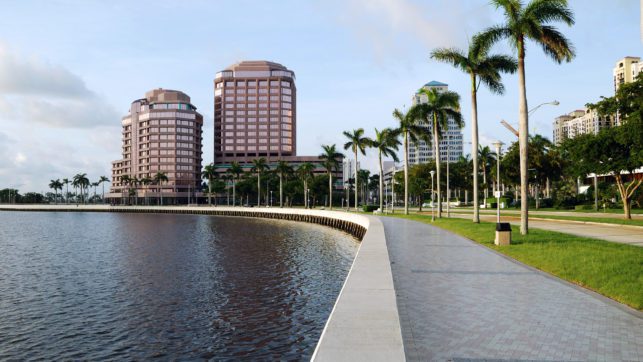
Delray Beach Announces a 48% Decrease in Overdose Deaths
Overdose deaths in Delray Beach are on the decline, a trend that began last year. The latest data, announced by the Palm Beach County Commissioner’s Office looked at the first 9 months of this year and saw a 48% decrease in overdose deaths.
The State Attorney for Palm Beach County, Dave Aronberg, credits multiple reasons for the reduced numbers, namely the availability of Narcan and the crackdown on sober homes.
“We’re not where we need to be yet, but we’re moving in the right direction,” Aronberg said. “It’s not just about putting handcuffs on people. While that’s important, it’s about providing prevention and rehabilitation with enforcement.”
As the country continues to battle with the widespread opioid epidemic and rising overdose death rates, Delray Beach, which is often regarded as the recovery capital of the world, is seeing fewer sober homes and fewer overdoses. In addition to the new bill signed by Trump, Delray Beach will have the capacity to continue setting this standard for the country in how to handle the opioid crisis.
President Trump’s Bill and Delray Beach
The bill, signed yesterday by President Trump, in regards to the city of Delray Beach, allocated more funding for treatment and recovery supports, as well as included the 5 pages drafted by Marco Rubio (starts on page 562) that will make Patient Brokering illegal on a federal level. He discussed the recent hearings that he and Dave Aronberg have been participating in at the House Energy and Commerce Committee, and he mentioned there will be a lot of movement in the coming weeks. He commended the DBDTF and members for being the first to draw their attention to this crisis years ago, and for remaining solution-oriented.
The Story of Delray Beach
Once upon a time, Delray Beach was “the place” to get sober. This led to many people finding life after recovery, but it also led to advantages taken within the recovery community itself.
There was an influx of unethical sober homes, the misuse of the word marketing, patient brokering, and insurance fraud–all without the necessary focus of actually treating the people coming to Delray to get help. And while there were reputable treatment centers in the area, they were slowly awash in a sea of less than savory sober homes, IOP’s, PHP’s, and the like. With this lack of focus and the opioid epidemic well underway, Delray Beach saw its overdose death rates rise and even surpass the rest of the country. Delray Beach became a minefield in regards to treatment and overdose deaths.
Today, however, Delray Beach is setting a new example within the recovery community, and for cities across the United States as whole; as they continue to see declines in the overdose death rates, shut down unethical sober homes, set higher standards for treatment, give access to the life saving drug Narcan, and begin allocating more money for the treatment of addiction within accredited, recommended and reputable facilities.
And while no one need die from the disease of addiction, this nearly 50% reduction in overdose deaths is a huge success. It places Delray Beach in line with Vermont, as top in the country, in its handling of the epidemic and treating those affected by it. Vermont, which was similarly affected by the crisis, has also seen a massive reduction in overdoses and overdose deaths this past year, using many of the same principles and modalities as in Delray Beach .
The next update will be November 13th of this year. We look forward to seeing what other positive changes the new bill and the continued effort of the Sober Home Task Force, law enforcement and the community as a whole, can achieve.